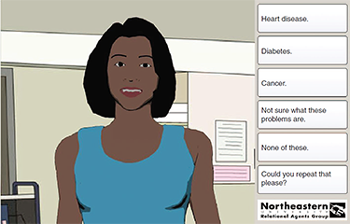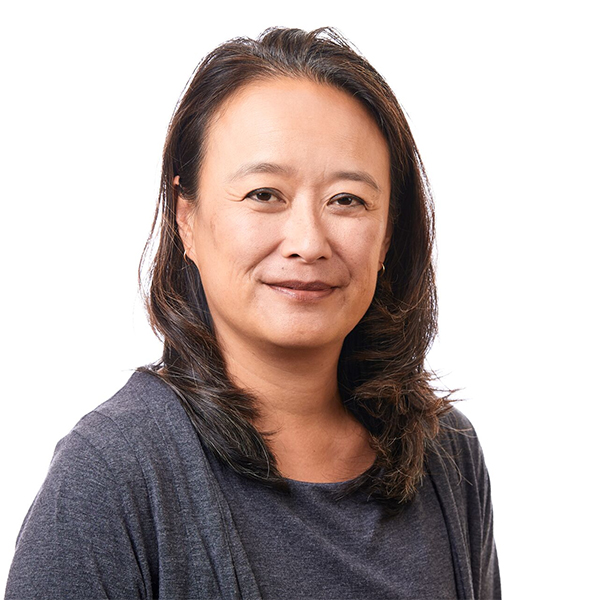Researchers Pilot New Way to Collect Family Health History.
Researchers from the Schools of Public Health and Medicine reported in the journal Genetics in Medicine that the results from a pilot study of the computer-animated program they developed “demonstrate the acceptability of a virtual counselor, as well as the feasibility of using this platform to collect family health history in an electronic format.” The new touch-screen tool also overcame “some of the previously identified barriers” in collecting information using another existing computerized tool (the Surgeon General’s My Family Health Portrait, or MFHP).

The new program—dubbed “VICKY,” for Virtual Counselor for Knowing Your Family History—identified 86 percent of first-degree relatives, as compared to full family histories obtained by a genetics counselor. Its success rate in detecting six health conditions was 49 percent—higher than the MFHP rate—with significantly higher detection for hypertension and type 2 diabetes.
Catharine Wang, associate professor of community health sciences at SPH and lead author of the study, said family health history is “one of the most important risk factors for many chronic conditions,” yet its integration into clinical practice has had “surprisingly poor frequency and quality.” Among the most commonly cited barriers to collecting the information are a lack of time, lack of physician compensation for the efforts, and a lack of standardized collection methods, she said.
“Although many computer-based tools have been developed in recent years, our concern remained that many patients still had difficulties using them,” Wang said. “We wanted to find an easier way to automate the electronic collection of family history information.
“VICKY guides a person through by engaging in a conversation, much like a real person would do, rather than placing the burden on an individual to navigate through a program. ”
The research team recruited 70 participants from Boston Medical Center, many of them lower-income individuals and minorities, to use either VICKY or the MFHP. VICKY consists of an animated computer character on a touch-screen tablet that asks a series of questions about the user’s family health history, targeting common chronic conditions including heart disease, stroke, and various cancers. Users respond to the verbal questions by selecting pre-formulated, simple responses on the screen, with the choices updated at each turn in the conversation. Response options are short and easy to read, reducing the literacy burden.
VICKY’s success in identifying patients’ family members and their health conditions was compared to information collected over the phone by a genetics counselor. Overall, its accuracy in identifying first- and second-degree relatives was comparable to that of the MFHP, while its success in identifying health conditions was higher. The majority of users—91 percent—rated VICKY as easy to use. The average time for completing the program was 15 to 30 minutes.
The authors said prior studies have identified frustrations with navigating the existing MFHP tool, which they believe VICKY alleviates.
“Efforts to facilitate the electronic documentation of family health history should reflect the diverse needs of the population and ensure that barriers such as health or computer literacy do not limit who is able to access and use such systems effectively,” they said. They plan to refine and expand the tool and test a Spanish-language version.
“Ultimately, our goal is to improve the systematic documentation and use of family history in primary care to identify those at greatest risk for chronic diseases, who would benefit from preventive intervention efforts,” they said.
In addition to Wang, researchers included: Tricia Norkunas, project manager in community health sciences; Howard Cabral, professor of biostatistics; Michael Winter, associate director of the Data Coordinating Center; Mary Ann Campion and Michael Paasche-Orlow of the School of Medicine; Deborah J. Bowen, formerly of SPH and now at the University of Washington School of Medicine; and Timothy Bickmore of the Northeastern University College of Computer and Information Science.
Submitted by: Lisa Chedekel
